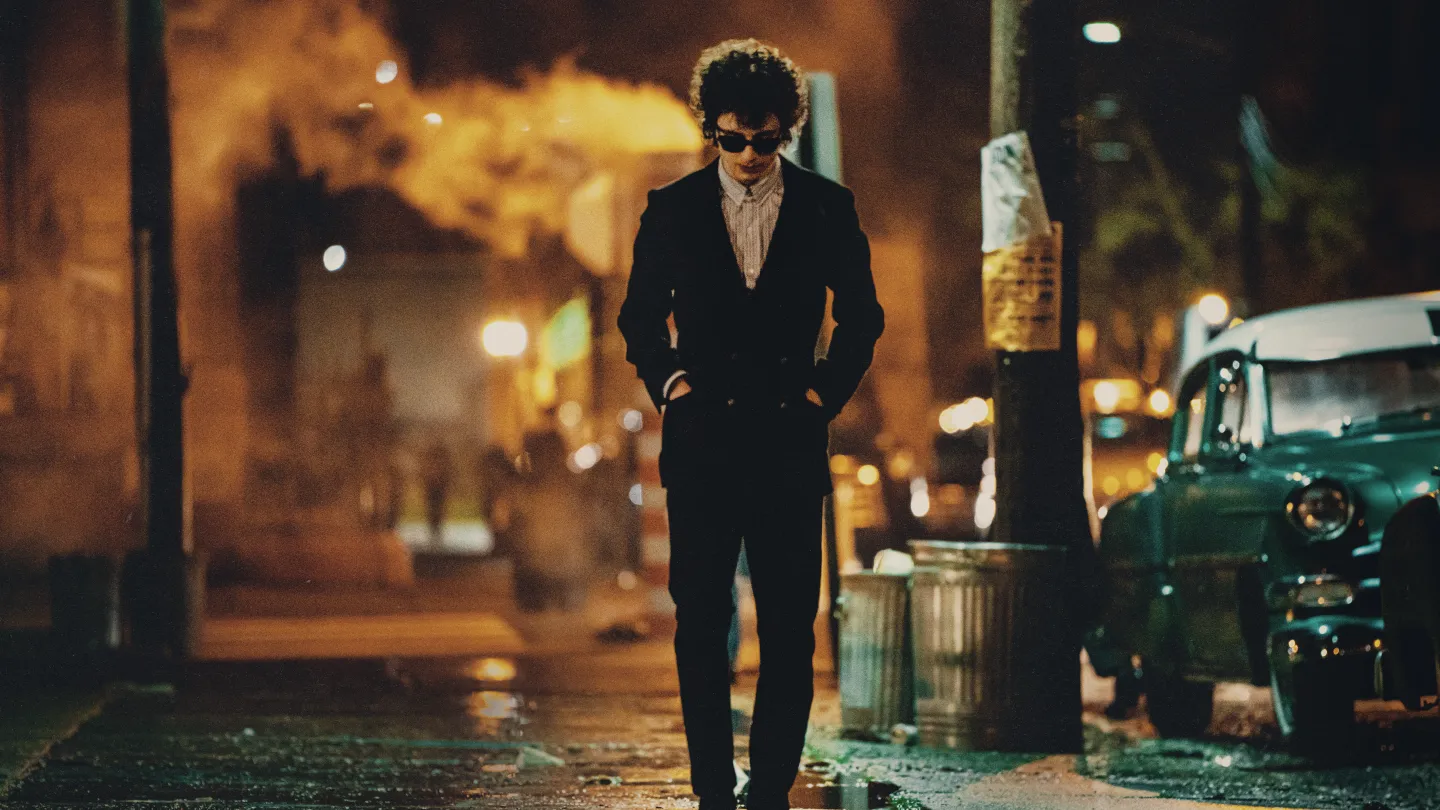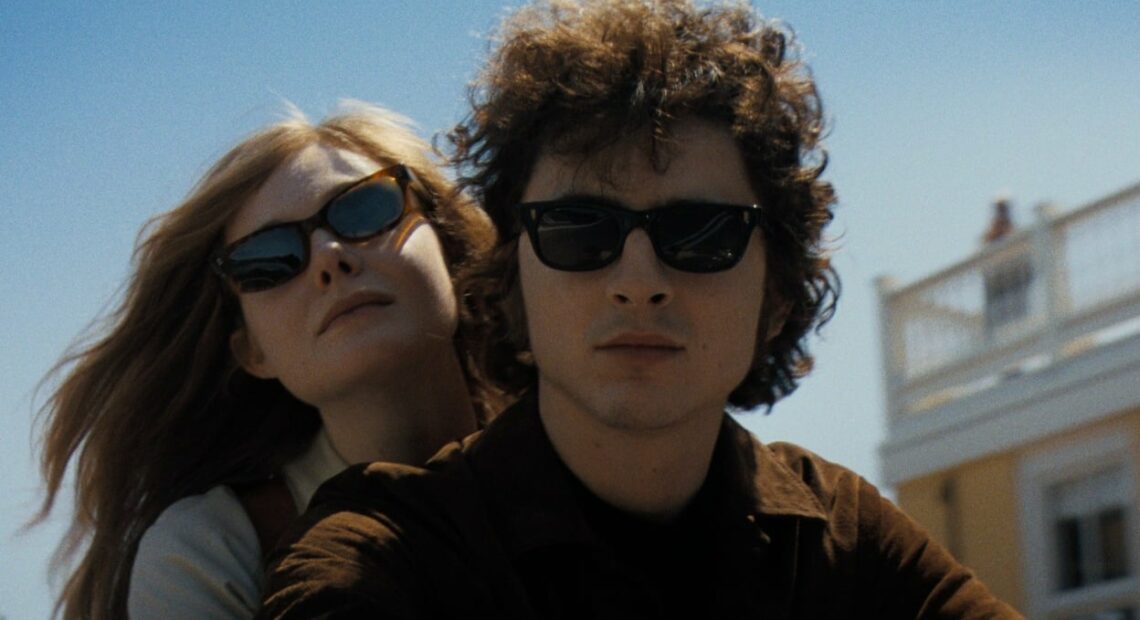
Reeder’s Movie Reviews: A Complete Unknown
“Two hundred people in that room, and each one wants me to be somebody else. They should just let me be.”
When 19-year-old Robert Allen Zimmerman came to New York from his native Minnesota in 1961, he just wanted to “catch a spark.” He had already abandoned rock-and-roll for folk music, which he considered more “realistic” as a form of expression, full of “more despair, more triumph, more sadness, more faith in the supernatural.” By working the clubs and establishing relationships in Greenwich Village, he realized a meteoric rise to fame and found his own distinctive voice–a voice that captured the spirit of the times. They were definitely a-changin’.
In director James Mangold’s new film, Timothée Chalamet portrays the young Bob Dylan (the professional name he adopted at age 21) from 1961-1965. He gives a remarkably nuanced, accomplished performance in a movie that occasionally gets bogged down in truncated or unnecessary scenes, but not too often. The supporting cast shines as well.
The script, co-written by Mangold and Jay Cocks (a former long-time film critic for Time, Newsweek and Rolling Stone), does not really attempt to penetrate the mysterious, enigmatic persona of its subject. Instead, it places Dylan in a rich context of personal relationships, professional challenges and a transitional period in modern American history. We get glimpses of motivation and inspiration, and we get the iconic songs.
Chalamet’s performance has some of the brooding of Paul Atreides, his character in the Dune franchise. However, here it reflects a very specific artistic purpose. Combined with the period clothes, the walk, the nasal whine of the speaking and singing voices, and the guarded, vulnerable qualities of Dylan’s personality, Chalamet galvanizes this entire story.
True to real-life events, Dylan visits his idol, Woody Guthrie (Scoot McNairy), at Greystone Park Psychiatric Hospital. Pete Seeger (Edward Norton) befriends him and generously supports Dylan’s budding career. The young singer-songwriter is thoroughly dedicated to his music, working on chords and lyrics at every turn. Even as his talent manifests itself to an ever growing public, he increasingly keeps his mentors, fans and lovers at arm’s length.
Elle Fanning (The Great) as Sylvie Russo, an approximation of Dylan’s girlfriend Suze Rotolo, brings warmth and poignance to her portrayal. Monica Barbero (Top Gun: Maverick) expresses a strong will, as well as an artistic spirit, in her take on Joan Baez. Both create well-defined characters on screen.
Edward Norton (Fight Club, Birdman) offers a relaxed and understated performance as Pete Seeger, one of the godfathers and guarantors of the folk movement. As Johnny Cash, another of Dylan’s idols, Boyd Holbrook (Logan, The Bikeriders) brings the brashness and the humor.
Of course, a biopic about Dylan has to incorporate his music. In that respect, A Complete Unknown excels. Chalamet diligently prepared for his role by refining his guitar and harmonica technique over the course of five years. He sings and plays all of the Dylan songs on the soundtrack. Similarly, Barbaro (Baez), Norton (Seeger) and Holbrook (Cash) do their own singing and playing. They recorded all of the numbers live on set, and the results give the concert scenes immediacy and authenticity.
In 2007, writer-director Todd Haynes made a picture called I’m Not There. He took the bold (unauthorized) step of trying to capture various aspects of Dylan’s public persona by having six different actors, including a woman and an African-American child, play him. It’s a fascinating, frustrating watch, with some excellent performances. Dylan himself described the film as “all right” and the acting as “incredible.”
On the other hand, A Complete Unknown reflects its subject through the presence of one actor at the center of a much larger story about the demands of fame, the commercial realities of the music industry, and the evolving American social and cultural landscape. This Dylan is brilliant, yet often unpleasant, uncompromising, unreliable. He lives to retreat into his music. He lives for his freedom, “like a rolling stone.”
The versatile Mangold, who also directed the Academy Award-winning Johnny and June Carter Cash biopic Walk the Line, focuses on just the first five years of Bob Dylan’s career. The story reaches its climax at the 1965 Newport Folk Festival, when Dylan “went electric” with his new band, scandalizing the folk music community and alienating many of his friends and supporters, including Pete Seeger. As directed by Mangold, the sequence encompasses broad humor, wistful nostalgia, and historical change.
Ultimately, A Complete Unknown rests on the shoulders of Timothée Chalamet, and he delivers. He’s fully invested in his character–his musical talent, his social awareness, his private aloofness, his suspicion of public adulation. He plays the role with gusto, in the way that he suggests in the film: “You can be beautiful, or you can be ugly. But you can’t be plain.”
More Movie Reviews:
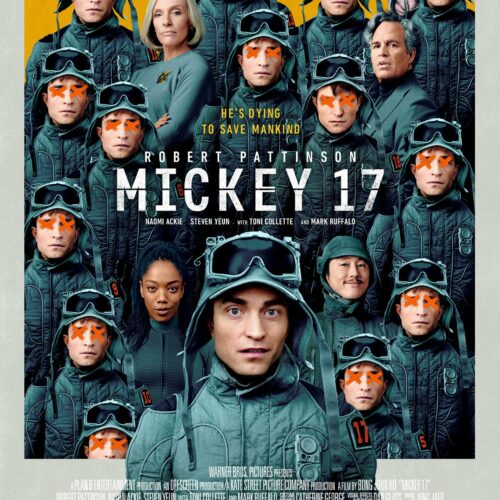
Reeder’s Movie Reviews: Mickey 17
Movie poster of Mickey 17 courtesy of Warner Bros. Pictures. Read “You don’t look like you’re printed out. You’re just a person.” In writer-director Bong Joon Ho’s new science fiction
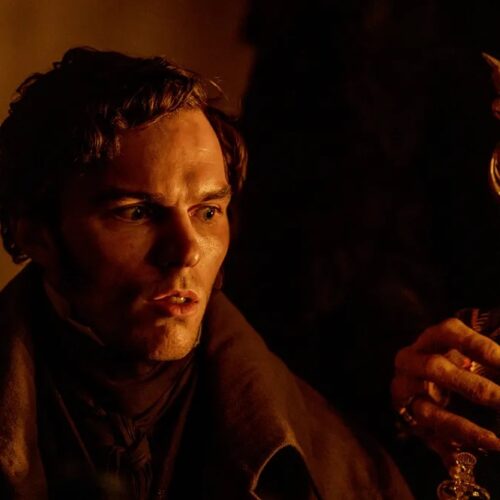
Reeder’s Movie Reviews: Nosferatu
A classic tale laced with horrific, religious, folkloric and erotic themes. Robert Eggers seemed destined to make a movie about it. Finally, after a decade of preparation, he has.
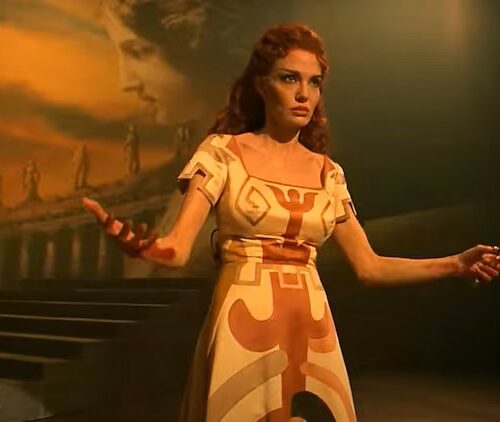
Reeder’s Movie Reviews: Maria
“Maria Callas was someone that as she was singing, she was dying every time. Life was taken from her while she sang.” The Chilean writer-director Pablo Larrain has a fascination with mortality. The manifestations of it course throughout his work. In many respects, it inspires his art.

